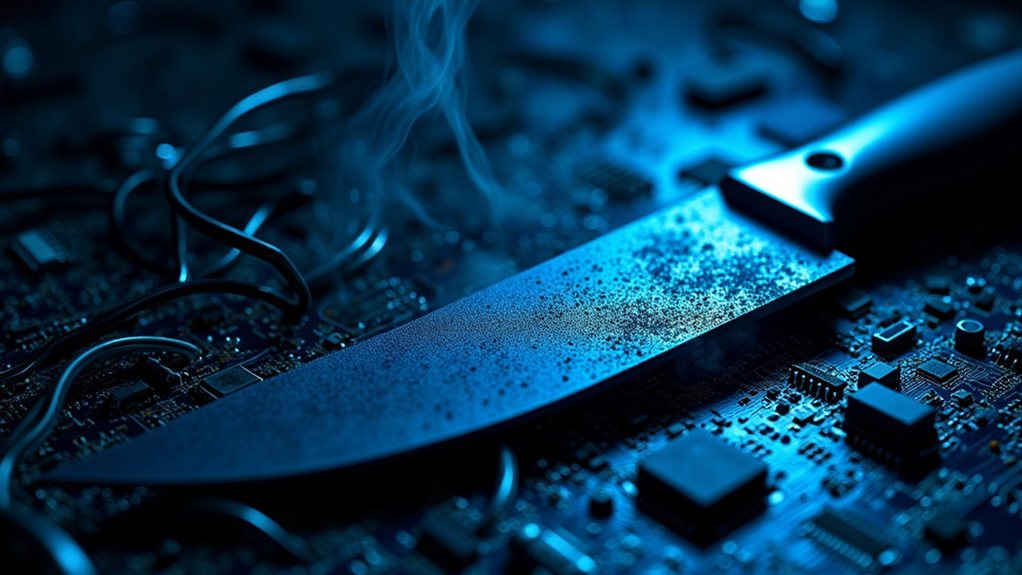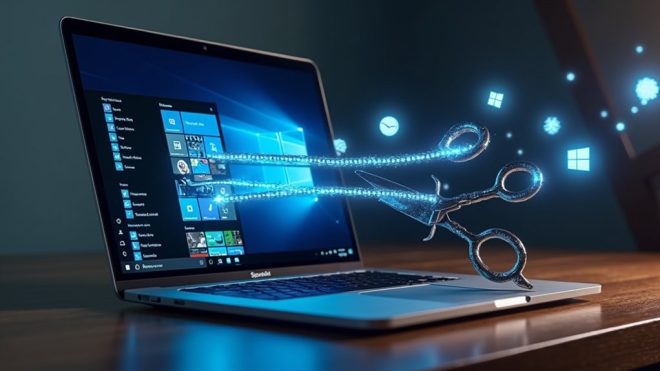Windows 11 users can now reclaim system resources by removing pre-installed bloatware like Copilot, Teams, and Outlook using specialized tools and PowerShell scripts. These applications, although integrated into the operating system, often consume valuable CPU cycles and RAM without providing crucial functionality. Win11Debloat offers a streamlined solution for surgical removal of unwanted Microsoft applications, though vigilance is required as some programs may reinstall during system updates. The battle against bloatware continues to evolve with each Windows iteration.

Although Windows 11 promises a sleek computing experience, many users find their shiny new operating system bogged down by an unwelcome passenger: bloatware. Like barnacles on a speedboat, these pre-installed applications cling to the system, consuming valuable resources and degrading performance while offering questionable value in return.
Bloatware turns the sleek promise of Windows 11 into a sluggish reality, weighing down systems like unwanted digital baggage.
Microsoft’s latest operating system comes loaded with an ecosystem of integrated services, with Copilot, Teams, and Outlook leading the charge. While these applications might serve some users well, they’ve become poster children for the broader bloatware debate. Think of them as those unexpected dinner guests who not only overstay their welcome but raid your fridge and hog the Wi-Fi. These arrangements often stem from lucrative partnership deals with software companies. Users frequently encounter trial software versions that constantly prompt for purchases to unlock full functionality.
The impact of bloatware extends beyond mere annoyance. These applications silently consume CPU cycles, occupy precious RAM, and nibble away at storage space like digital termites. Pre-installed games, trial versions of antivirus software, and manufacturer-specific utilities create a perfect storm of system slowdown that can turn a high-performance machine into a digital slug.
Fortunately, users aren’t helpless against this software invasion. PowerShell scripts and specialised tools like Win11Debloat have emerged as powerful allies in the fight against unwanted applications. These tools can surgically remove everything from Teams Chat to Windows Copilot, restoring system resources to their rightful owner – the user.
The removal of Microsoft‘s trinity – Copilot, Outlook, and Teams – has become particularly significant for users seeking to optimise their Windows 11 experience. These applications, although potentially useful in corporate environments, often represent unnecessary overhead for personal users. Their background processes can be particularly demanding, making their removal a priority for performance-conscious users.
However, the battle against bloatware requires vigilance. Like a persistent garden weed, some applications have a habit of sprouting back after system updates. Users must regularly monitor their systems and maintain their debloating efforts to prevent the gradual return of unwanted software.
The presence of bloatware in Windows 11 reflects a broader tension between operating system vendors, hardware manufacturers, and end users. While Microsoft and OEMs see these pre-installed applications as opportunities for ecosystem integration and revenue generation, users increasingly view them as unnecessary intrusions into their computing experience.
As Windows 11 continues to evolve, the push and pull between these competing interests guarantees that bloatware removal will remain an essential skill for users seeking to maximise their system’s potential.
Final Thoughts
Windows 11 offers users enhanced removal tools for preinstalled apps, yet Microsoft’s AI features like Copilot, Outlook, and Teams are still deeply integrated. While power users may find ways to eliminate unwanted bloatware, average consumers face the dilemma of choosing between convenience and customization. The Emotional Computer team can assist you in navigating these challenges and optimizing your Windows experience. If you’re looking for support in managing bloatware or enhancing your system, click on our contact us page to get in touch!

